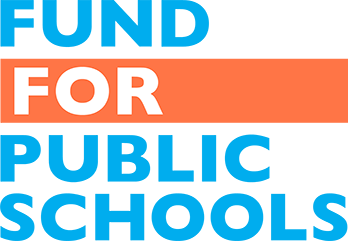Students in Temporary Housing
Every New York City student, no matter the challenges they face, deserves an excellent education. Yet, for many students experiencing homelessness or living in temporary housing there are significant hurdles along their path to success in college and careers. Each year, approximately 100,000 students experience homelessness, and investing in their academic success and social-emotional well-being can make a world of difference.
Students in Temporary Housing (STH) are defined as students experiencing housing instability at any point, for any length of time, during the school year. Research shows that this student population faces unique academic challenges. In particular, they are more likely to be chronically absent than their housed peers, often leading to lower academic performance and higher drop-out rates.
Ensuring students in temporary housing receive the supports and interventions necessary to succeed requires a whole City effort. The Fund for Public Schools partners with the NYC Department of Education (DOE) and the philanthropic community on initiatives to support the City’s priority focus on STH, as part of a broader collaboration across City agencies and community-based organizations.
Most recently, in 2018, the City announced it would deepen its investment in STH through an additional $12 million in targeted programs, and the City’s investment this year is approximately $42 milllion. As the City doubles down on its commitment to STH, private partnerships have been instrumental; providing seed funding to test promising ideas, track impact, and scale up solutions to best support students in temporary housing system-wide.
Since 2016, Deutsche Bank, through The Fund, has generously invested in initiatives to support STH, from addressing chronic absenteeism to improving system-wide effectiveness. Deutsche Bank’s investment began in the 2016-17 school year funding a pilot initiative, in partnership with the DOE’s Office of Community Schools, within 20 Community Schools with some of the highest rate of STH. Community Schools serve a disproportionately large number of STH, and each school acts as a neighborhood hub – focused on high-quality instruction and wraparound supports – making them strong sites for targeted investments toward interventions, such as stemming chronic absenteeism.
The goal of this pilot program was to support attendance and increase the likelihood of improving academic outcomes, all while learning how to improve upon strategies to best serve STH. Through this generous investment, a full-time Program Development and Design Coordinator worked to facilitate a comprehensive strategy at 20 schools, placing social work graduate students as Success Mentors (which connect at-risk students to social services and supports, and provide coordinated case management). The pilot program supported by the full-time Coordinator resulted in increased attendance at these schools and it led to key innovations around engaging university partnerships. This year, the same effort is supporting more than 50 social work graduate students. At the conclusion of the grant term, the Coordinator role was added as a City-funded member of the STH team and is continuing and expanding upon this vital work.
Following the pilot program, some of the best practices that have emerged include targeted and more effective professional learning for school-based staff; stronger community partnerships and more robust connections between schools and shelters; and, innovative methods for schools to use real-time data, in order to better target supports and interventions for STH.
Further, through the contributions of many generous individual donors and businesses – through workplace-giving drives and corporate gifts – The Fund has been able to work with schools to provide students with essential resources that range from back-to-school supplies to brand new laptops for graduating high school seniors heading to college.
The Fund for Public Schools is in an ongoing collaboration with the DOE to identify areas of need and opportunity, in order to facilitate public-private partnerships that can provide stability and a wide-range of critical supports for STH. If you are interested in joining our ever-growing list of supporters helping to ensure every student gets the excellent education they deserve, join us.

